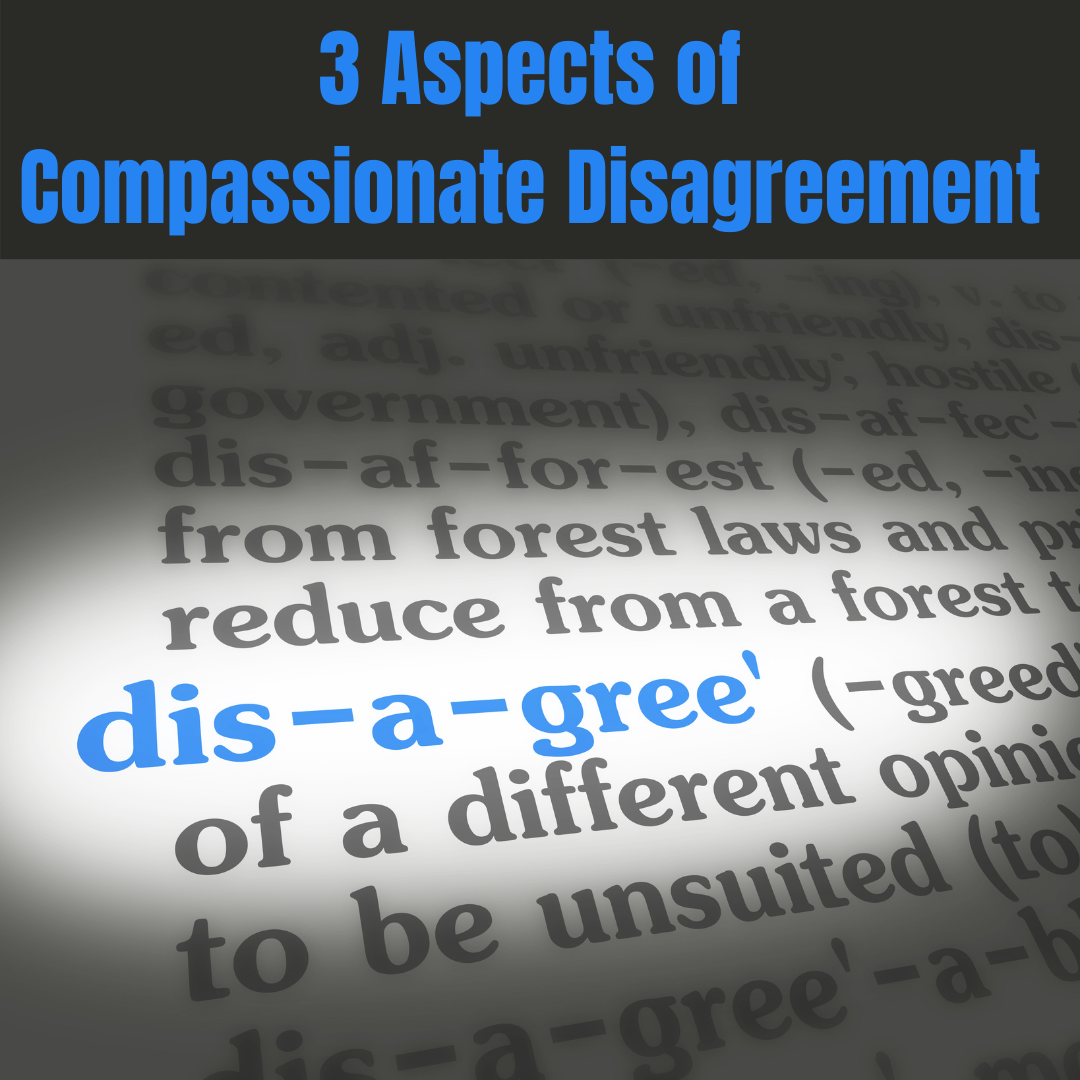One of the most useful skills we can cultivate in this day and age is the ability to patiently listen and connect with someone who holds a different belief, or opinion than our own.
There have been a series of major events this year that embody the clear division that exists between families, communities, and the nation at large––opinions differing from the pandemic, to politics, natural disasters, the uprising, and much more.
The ‘us vs. them’ mentality seems to be prevalent at this stage in 2020, and is visible throughout virtually all media outlets in both language and demeanor. Having contrasting viewpoints with another person or idea doesn’t have to be an issue of scandal or frustration. In the same way that you do not agree with every single person’s thoughts, not everyone will agree with yours. It’s when we come to accept this fate with a curious open-heart that we can ease tensions within ourselves, and thus those around us.
We call this compassionate disagreement.

There are three key aspects to compassionate disagreement: safety, neutrality, and humility.
1. Safety
Compassion implies that we allow ourselves to feel with or for someone else. So when we bring this characteristic of compassion into our conversations, we can create an environment that feels much safer for all people involved to express themselves. There is simply no room for feelings of ‘attack’ to set in when compassion is at play. Rather, this skill allows us to stay present with the other person’s humanity and feel into where they’re coming from. This doesn’t suggest that you need to agree with them. It just means that you’re willing to give them the space to voice their experience. These kinds of connections will consistently feel more nurturing and safe in contrast to a back and forth argument of who’s more right versus wrong.
2. Neutrality
It goes without saying that there exists an ever wide spectrum of beliefs and opinions.
How we show up to these differences is what ultimately matters. Training ourselves to operate from a place of response instead of reaction can be incredibly useful in our communications. There’s the well-known saying, “agree to disagree”, yet still when this phrase is used it’s often met with harsh judgment or uncomfortable feelings. How often is it that friendships, families, and communities become separated or write one another off as a result of not being able to communicate around opposing perspectives? Conveying our perspective or opinion isn’t dependent on defensiveness or short-fused behaviors. It’s a skill in expressing our truth with steadiness and neutrality.
3. Humility
Accepting that our own way may not be the ‘right’ way is part of bringing humility into a compassionate disagreement. Because, when has it ever been fun to talk to a “know it all”? Upleveling our disagreement skills asks us to ground in the fact that everyone is entitled to their own process of discovery and opinion, and to assume that our way is the only way, creates communication barriers from the get go. What it comes down to is that people rarely remember the fine details of what you had to say, but they certainly remember how you made them feel. The most effective and memorable conversations are those had with curious minds, and it is no different while engaging in disagreement.
Approaching disagreement with a sense of compassion may very well get us through some very tough and uncertain times. May this practice rooted in safety, neutrality, and humility bring us closer together as we head towards the final months of the year.
by Melissa Aparicio, contributing author
We invite you to discover inspiring and effective ways to care for yourself and to serve others. Now more than ever, caring is what we all need most. Caring for our self. Caring for others around us. Life now demands caring, resilience and compassion like never before. So, become a Custodian of the Caring Movement and help create the world we need right now, the world we want for our future generations.
UCA resources available to help include the Turbulent Times Resources Center, radio show, publications and online store offering members huge discounts and always free shipping.

